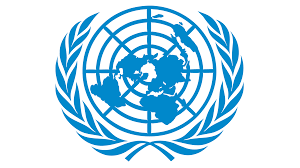Washington DC, June 26: India’s candidature for the United Nations security council (UNSC) non-permanent seat for a two-year term has been approved unanimously by the Asia-Pacific group.
In a tweet, Indian permanent representative to the UN ambassador Syed Akbaruddin said, “A unanimous step. Asia-Pacific Group @UN unanimously endorses India’s candidature for a non-permanent seat of the Security Council for a 2-year term in 2021/22. Thanks to all 55 members for their support.”
A unanimous step.
Asia-Pacific Group @UN unanimously endorses India’s candidature for a non-permanent seat of the Security Council for 2 year term in 2021/22.
Thanks to all 55 members for their support. 🙏🏽 pic.twitter.com/ekNhEa19U1
— Syed Akbaruddin (@AkbaruddinIndia) June 26, 2019
The message, along with a video, further said, “Asia-Pacific Group endorses India for Non-Permanent seat of UNSC 55 countries, 1 nominee – India for a non-permanent seat of UN Security Council Term 2021-2022.”
Nations like Vietnam, UAE, Turkey, Syria, Sri Lanka, Saudi Arabia, Qatar, Pakistan, Nepal, Myanmar, Maldives, Malaysia, Kyrgyzstan, Kuwait, Japan, Iran, Indonesia, China, Bhutan, Bangladesh, and Afghanistan has backed India’s candidature.
The UNSC consists of 15 members which include 5 permanent members and 10 non-permanent nations.
Every year, the UN elects five nations to the 15-member UNSC (10 of whom are non-permanent members) for maximum a two-year term, as per a geographical roration scheme set in 1963 by the assembly, in order to ensure fair regional representations, five from Pacific, Asian and African states, two from Latin American states, two from Western European, one from Eastern Europe, and other states (WEOG).
Five nations have secured non-permanent member seats in the UNSC after the United Nations general assembly on May 9 conducted a secret ballot.
Several nations have been for long backing India’s candidature for the UNSC permanent membership. India, a founding member of the UN, is among the largest contributors (nation) of troops to the UN peacekeeping mission. India has been elected seven times to the UNSC as a non-permanent member, mostly around 2011 to 2012.
Also read:
- German envoy Linder bats for India’s permanent seat in UNSC
- 5 nations assume UNSC non-permanent member seats in January 2020.

